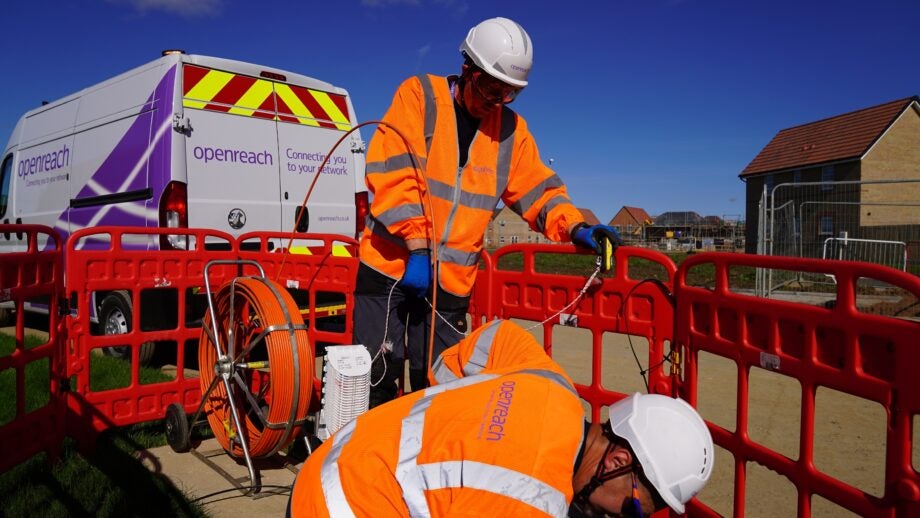What is BT Openreach? What you need to know

Openreach has been a key player in building and maintaining the UK’s broadband and telephone networks since 2006.
More recently, Openreach has been working on delivering its Ultrafast Full Fibre broadband to more homes in the country. Here’s everything you need to know about Openreach, its relationship with BT and Ultrafast Full Fibre.
What is BT Openreach?
Openreach (previously known as BT Openreach) is the company that operates and maintains the enormous network of copper wires and fibre cables that connect homes and businesses in the UK.
While BT builds and maintains the infrastructure, the Openreach network is used by more than 690 providers to deliver broadband, Ethernet and telephone services. This includes Sky, TalkTalk, Plusnet, Vodafone, NOW and, of course, BT.
Openreach was originally established as a division of BT in 2005 and opened for business in 2006. However, as of 2017, Openreach has functioned as a legally separate company to comply with Ofcom’s finding that BT had an unfair advantage over competing broadband providers. As of 2024, BT Group still owns Openreach but the company is managed as a separate business to BT and is independently governed.
Openreach consists of four divisions – service delivery, fibre and network delivery, strategic infrastructure development and headquarters – that coordinate with councils, highways agencies, energy suppliers and landowners to install and maintain the infrastructure behind fibre broadband services.
What is Ultrafast Full Fibre?
The company’s most recent mission has been bringing Ultrafast Full Fibre broadband to more of the UK. Also known as Fibre to the Premises (FTTP), Ultrafast Full Fibre broadband uses pure fibre optic cables to connect you straight to the exchange without first connecting to the cabinet.
This means improved performance, faster speeds and fewer drop-outs whether you’re using your phone, tablet, laptop or VR headset.
“Openreach is a fibre business and no-one is more ambitious when it comes to building Fibre to the Premises”, said Openreach’s Chief Executive Clive Selley.
“Through our Fibre First programme, we’re building a network that delivers more than just speed. It will provide a future proof, consistent and dependable broadband service, that supports Britain for decades to come”.
More recently, the company has committed to bringing Ultrafast Full Fibre broadband to 25 million homes and businesses by December 2026.
You can check whether your area is included in Openreach’s build plan by searching your postcode on Openreach’s map.








